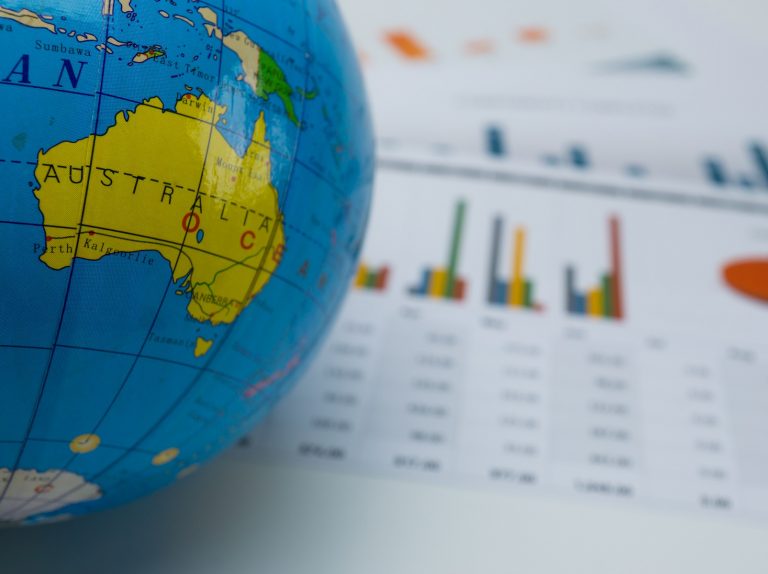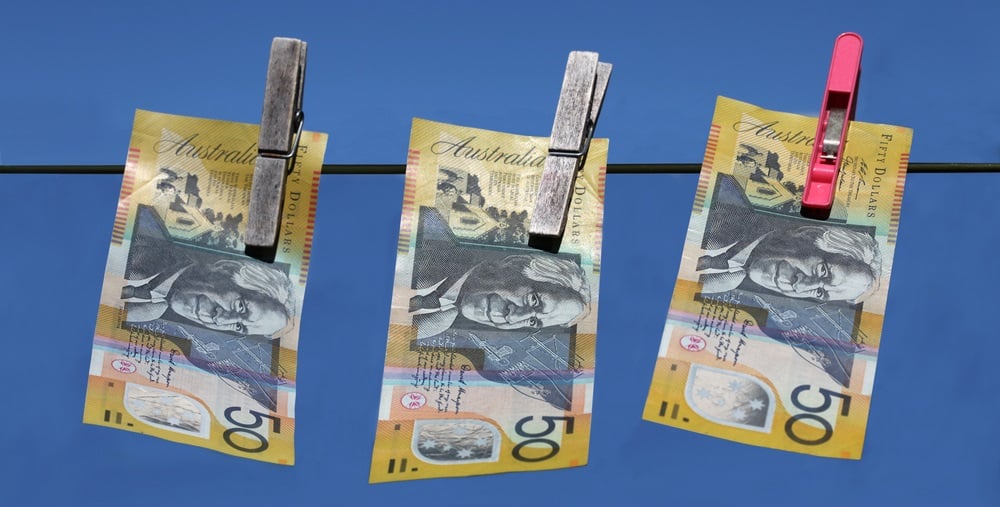Australia Probes Big Four Bank Accused of 23 Million Money Laundering Breaches
Publikováno: 18.12.2019
 With stricter new regulations on the horizon for the crypto space around the world, Australians have found that it’s actually their traditional financial institutions that have been breaching well-established anti-money laundering rules and other industry standards this year. Westpac, one of the country’s largest banks, is now under investigation for millions of purported violations of […]
With stricter new regulations on the horizon for the crypto space around the world, Australians have found that it’s actually their traditional financial institutions that have been breaching well-established anti-money laundering rules and other industry standards this year. Westpac, one of the country’s largest banks, is now under investigation for millions of purported violations of […]
The post Australia Probes Big Four Bank Accused of 23 Million Money Laundering Breaches appeared first on Bitcoin News.

With stricter new regulations on the horizon for the crypto space around the world, Australians have found that it’s actually their traditional financial institutions that have been breaching well-established anti-money laundering rules and other industry standards this year. Westpac, one of the country’s largest banks, is now under investigation for millions of purported violations of the nation’s AML regulations.
Also read: European Banks Struggle With Low Interest Rates and Strict Regulations
Westpac Investigated by Australian Regulators
The Australian Prudential Regulation Authority (APRA), which is the main banking regulator in the country, formally launched its probe on Tuesday. The APRA investigation commences a month after the Australian Transaction Reports and Analysis Centre (Austrac) filed a lawsuit against Westpac Banking Corporation (Westpac). The anti-money laundering and terrorism financing watchdog accused the bank of breaking the country’s AML laws over 23 million times.

APRA highlighted its intensions to focus on the conduct that led to the matters alleged by Austrac. The investigation has to establish whether Westpac, its directors and senior management staff violated Australia’s Banking Act and the Banking Executive Accountability Regime, contravening the prudential standards maintained by the regulator. The agency will also examine the “bank’s actions to rectify and remediate the issues after they were identified.” The published press release emphasizes:
Given the magnitude and nature of the issues alleged by Austrac, APRA is aiming to ensure that fundamental deficiencies in Westpac’s risk management framework are identified and addressed and that Westpac and those responsible are held accountable as appropriate.
Besides the extensive review of Westpac’s risk management practices, APRA will also “impose an immediate increase in Westpac’s capital requirements of $500 million.” The measure will raise the total capital the bank is required to hold in order to cover its heightened operational risk profile to $1 billion AUD (almost $685 million). “While Westpac is financially sound, there are potentially substantial gaps in risk governance that need to be closed,” commented APRA Deputy Chair John Lonsdale, who also noted the seriousness of the allegations that “question the prudential standing of Australia’s second largest bank.”
Australian Banks Struggle With a String of Scandals
During its investigation, Austrac discovered deficiencies in Westpac’s supervision of services offered through correspondents and other oversight failures that led to systemic non-compliance and violation of Australia’s AML/CTF Act of 2006. The bank has reportedly accepted most of the claims made by the watchdog in what has become Australia’s biggest scandal of this nature. Some of the 23 million AML violations allegedly facilitated child exploitation, the Sydney Morning Herald noted in an article. For comparison, less than 60,000 breaches were previously found at the Commonwealth Bank of Australia (CBA), the country’s largest lender.

Cryptocurrencies have enjoyed a growing popularity in Australia over the past few years, with bitcoin cash (BCH) accounting for a large portion of crypto spending. Aiming to increase oversight in the sector, last year Austrac introduced new stringent regulations that require digital asset exchanges to register with the watchdog, identify and verify their users, maintain records, and comply with government AML/CFT reporting obligations. Platforms that fail to do so face financial penalties and criminal charges. However, this year the country’s traditional financial institutions were actually implicated in numerous regulatory violations, which led to a string of scandals the banking sector is still struggling to overcome.
An inquiry initiated by the Australian government earlier this year found multiple other examples of misconduct in the industry including fees charged to the accounts of deceased persons, as news.Bitcoin.com reported in February. According to a summary of the issues published this week by Reuters, Westpac, CBA and the other two leading banks, Australia and New Zealand Banking Group (ANZ) and National Australia Bank (NAB), have had to allocate $8 billion AUD, approximately $5.4 billion, to refund customers for overcharged fees, miss-sold products, and non-compliant financial advice. On top of that, CBA’s management agreed to compensate over 40,000 current and former employees with $25 million AUD after it came out that they were underpaid.
What do you think of the scandals in the Australian banking industry? Share your thoughts on the subject in the comments section below.
Images courtesy of Shutterstock.
Do you need to track down a Bitcoin transaction? With our Bitcoin Explorer tool, you can search by transaction ID, address, or block hash to find specific details, and for a look at the broader crypto space explore our Bitcoin Charts tool.
The post Australia Probes Big Four Bank Accused of 23 Million Money Laundering Breaches appeared first on Bitcoin News.